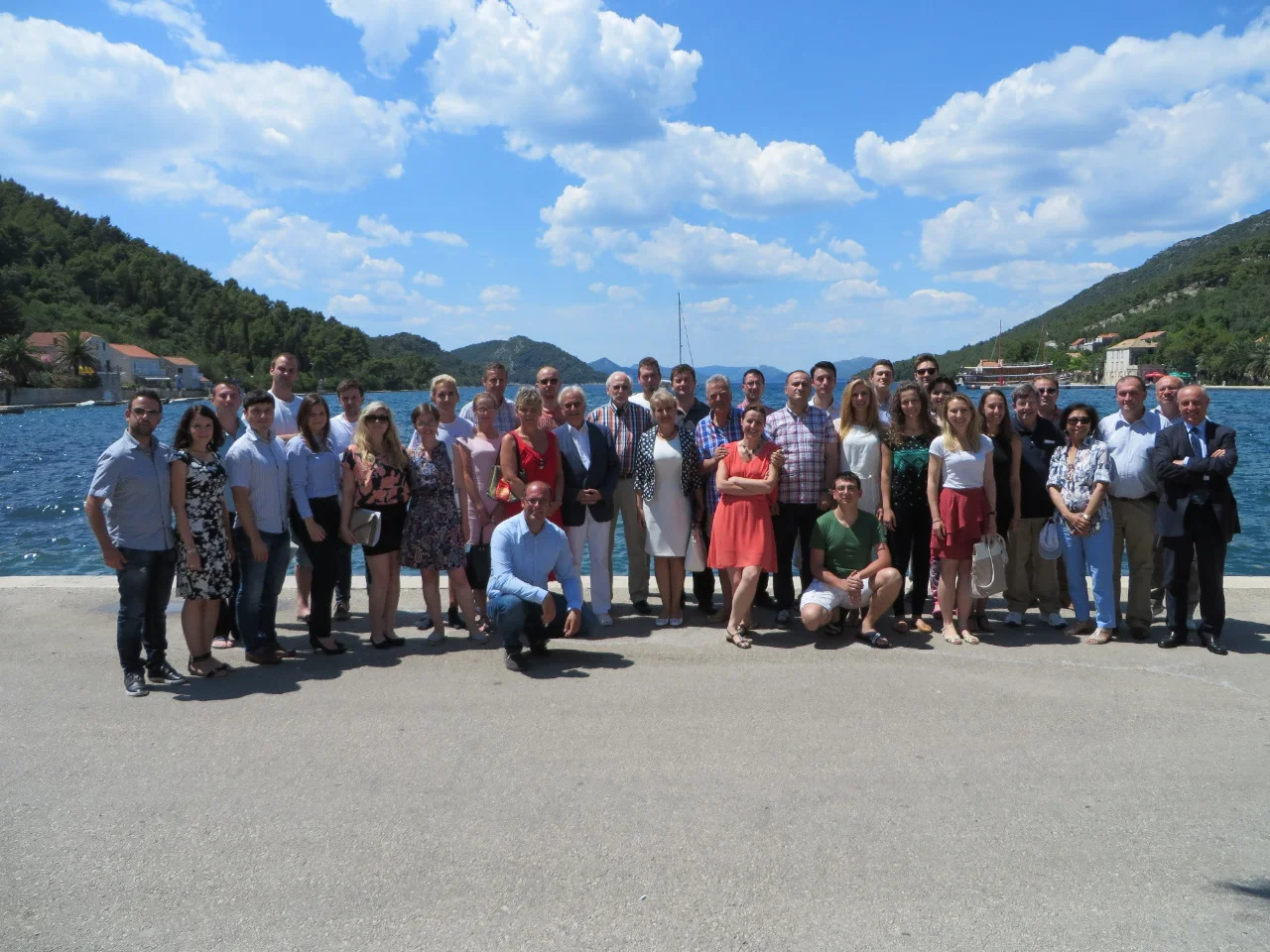Summer School in Sipan, Croatia
organized by the Atlantic Council of Croatia and International Institute for Peace, Vienna
In summer 2002 the Centre for International Relations, the Croatian Association for International Studies and The Atlantic Council of Croatia had organized their first International summer school on the island Šipan, Luka Šipanska, hotel Šipan.
The first year the school consisted of the two separate, one-week long scientific seminars intended for young leaders: attendants of post graduate and doctorate studies, diplomats, journalists, military officials, foreign affairs officials, civil servants, teachers, NGO members and all those who are, or will be, professionally involved with some aspects of the complex issue of international relations. After that till now we are organizing every year the four events in the framework of the International School.
The content of the summer school seminars and conferences is primarily focusing on topics relating to South East Europe and Euro-Atlantic integrations, which is understandable having in mind the venue of the summer school (the Republic of Croatia) and the significance of the South East Europe and the Euro-Atlantism within the emerging new European and world order.
The aim of the International Summer School is to reflect upon and analyze the complexities present in South East Europe and wider Mediterranean region to provide a forum for exchange of thoughts and perceptions between the members of younger generation, and to foster independent approaches to these issues through workshops and case simulations, constantly seeking for new suggestions on how to solve the numerous and complex problems of this part of Europe in a most efficient manner. On a small Mediterranean island, in a relaxed and informal atmosphere, young leaders are given the opportunity not only to contemplate on these issues together with the lecturers from academic circles, international organizations, NGOs as well as high ranking political officials and diplomats (president of state, ministers, ambassadors, military leaders), but also to meet their colleagues and establish professional and private contacts needed in their future professional development.
SUMMER SCHOOL 2020
Due to the COVID-19 pandemic the summer school did not take place this year. Instead, the Atlantic Council of Croatia organized a series of webinars available on Facebook. The contributions by IIP can be found below.
Hannes Swoboda on dangers for democratic principles in South-East Europe 🎬
Stephanie Fenkart on the importance of Euro-Atlantic values 🎬
SUMMER SCHOOL 2018
See the reports by Hannes Swoboda, Maro Polykarpou, Marlene Prinz and the essay "The Rise of Populism in Europe" by Stephanie Fenkart.
SUMMER SCHOOL 2016
Summer School 2015
In 2015 the School gathered speakers and participants from 15 different countries, United States of America, Russia, Ukraine, Italy, Canada, Austria, Hungary, Greece and all Western Balkan countries. The organizers invited as speakers many professors, experts and people from politics who transferred their knowledge to 40 participants, young leaders, PhD candidates, students from many countries, giving them different perspectives of the current situation of international security and stability. Participants were mostly interested in Macedonian crisis, current Greek crisis, but also Kosovo status.
Summer School 2014
Summer school 2013
Summer School 2012
Summer School 2011
International Neighbourhood Symposium, Odessa
The International Neighbourhood Symposium (INS) believes that tomorrow’s leaders can find ways to work together to resolve national, regional, and global challenges. In 2008, the 1st International Black Sea Symposium was held on the island of Kalymnos, bringing the format to focus exclusively on themes of interest to the wider Black Sea Region. In 2011, the International Neighbourhood Symposium was help in Istanbul, and evolved into a forum with a focus on both the Eastern and Southern neighbourhoods of the European Union and Turkey. After 6 successful editions in Istanbul, the Symposium was held for the first time in Odessa in 2017.
Each year, the Symposium brings together over 35 young leaders (between 22 to 35 years old). It is more than just a place for presentations of key regional and global challenges with a focus on democracy, civic engagement, gender and youth, hard as well as soft security issues. It also includes a two-day peer to peer workshop aimed at bringing out the best in the participants and creating joint projects with a national and regional focus to address the challenges of our times.
The Symposium focuses on the interaction of participants from different countries and a coming together of generations which results in a commitment to understand the world and to work together to change it. It is also a space of partnerships as the objective is to have as many like-minded organizations from different countries identify themselves with the Symposium.
The Symposium brings together an eclectic group of speakers and experts from all over the world to debate with the participants and present their own analysis on topics of interest. The high level of dedication shown by most participants, with their avid interests and intense level of participation, their challenging questions, and their commitment to taking part in the peer-to-peer workshops is undoubtedly the main highlight of the event. Yet, their commitment to knowing each other continued beyond the Symposium’s official hours.

